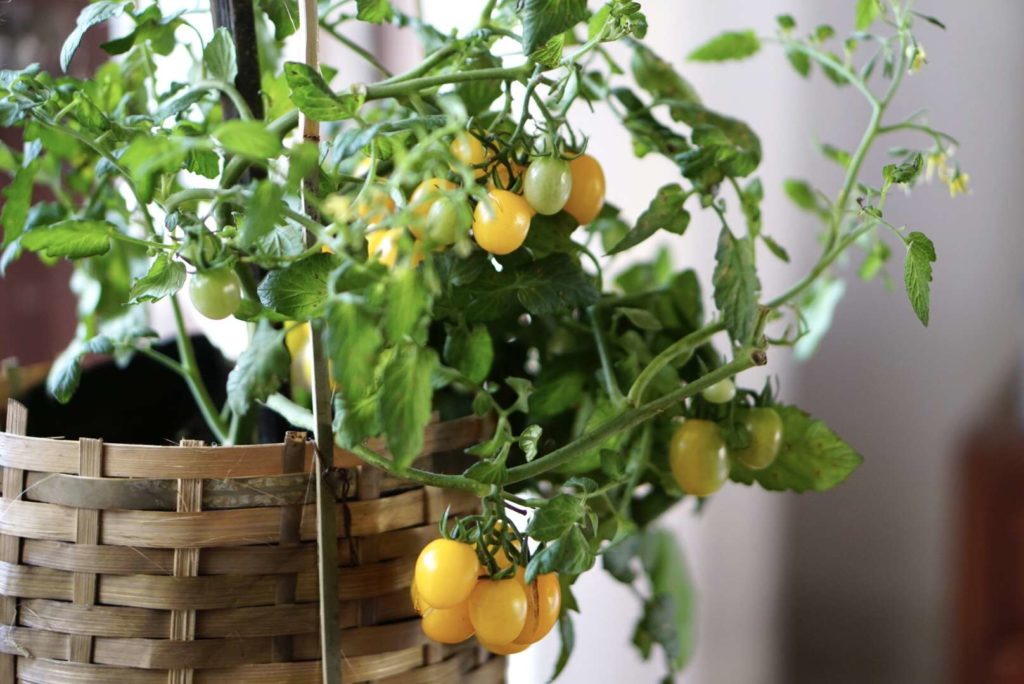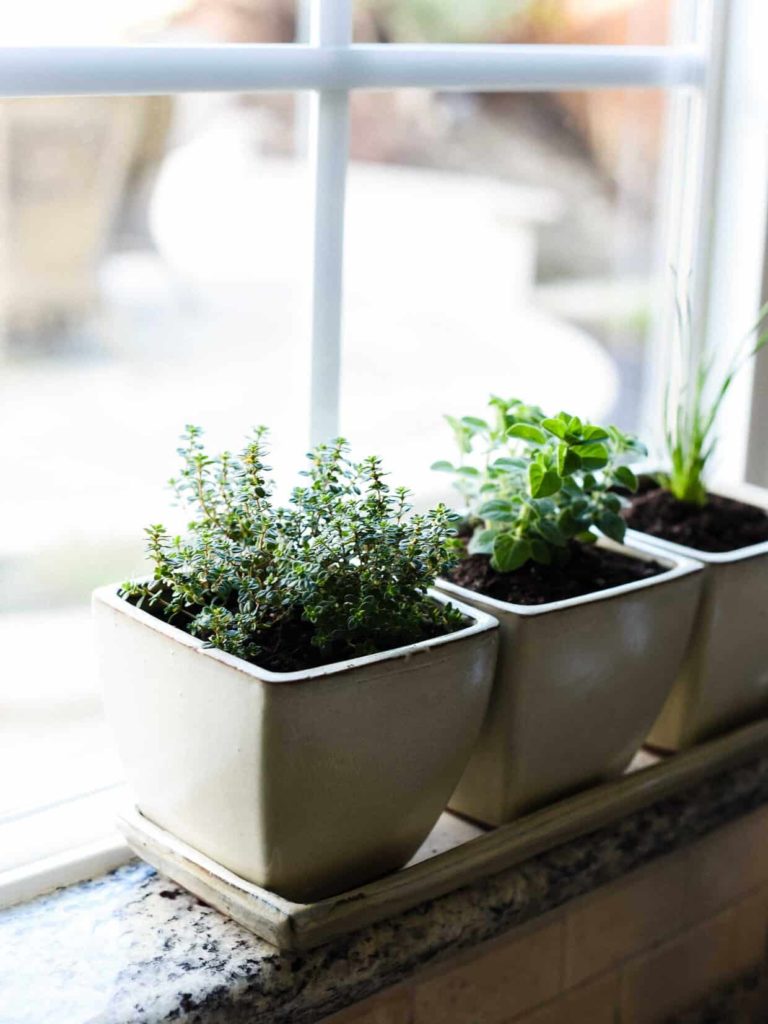Winter is creeping up on us and we aren’t sure about you but we love cooking all the comfort meals when it’s cold outside. The only downside is that for a lot of us, winter means we don’t have access to all those delicious homegrown fruits and vegetables we love cooking with during the spring and summer. Lucky for all of us, there are a number of things that can be grown indoors during the winter. Today we’re giving you a few of our best tips for starting a little indoor winter garden.

First things first, you’re probably wondering what you can grow inside. Allow us. The following herbs and vegetables can be grown indoors, in a container, during the winter:
- Tomatoes
- Bell Peppers
- Basil, Parsley, Rosemary, Mint, Ginger
- Spinach
- Chives
- Turnips
- Carrots
- Potatoes
- Asparagus
- Green Beans
- Avocado
- Mushrooms
- Scallions
Basically, just think of any ingredient that goes into a great soup to make it better.
While you can’t grow anything and everything you want in a container garden during the winter, you can grow some fun ingredients that make some delicious dishes and once you perfect a few variables, winter gardening is pretty simple and super fun.
Let there be light!
Ample sunlight is one of the most important variables when it comes to gardening, and of course, during the winter this can be tricky. We recommend placing your garden in or near a windowsill that gets a lot of sunlight. Now, this simply isn’t an option for everyone, and what about the days that are just plain gloomy? No worries! You can opt for some artificial sunlight by way of grow lights!

Be mindful of drafts.
Many of the plants and vegetables that can be planted during the winter are super sensitive to cold air, so much so that even being placed near a draft can be bad news, so make sure if your plants are being placed by windows that the windows aren’t letting in a bunch of cold air. If your plants need a bit of a spa day, we recommend taking advantage of your bathtub or shower and giving them a little bath, then letting them sit in the humidity for a while.
Shoo, fly!
There are pros and cons to winter gardening; one major pro being that your plants won’t be outdoors, free game for insects that seek to destroy. On the same hand, a con is that your plants are missing out on that natural ecosystem. Another con? There’s a chance your plants could draw unwanted guests into your home. Just be sure to inspect your containers occasionally for pests, and if you come across any, there are a ton of natural solutions you can use that are safe for everyone in the household.

Don’t summer water your winter garden.
Okay, this probably goes without saying, but if you’ve ever accidentally killed a plant by way of water, either too much or not enough, then you fully understand how fickle this process can be. (As well as the heartbreak that comes with killing a plant!) From the beginning, just keep in mind that you won’t be watering your plants nearly as much during the winter as you did during the summer. Each plant may be different, so we recommend keeping a log at first, then turning that log into your water schedule.
